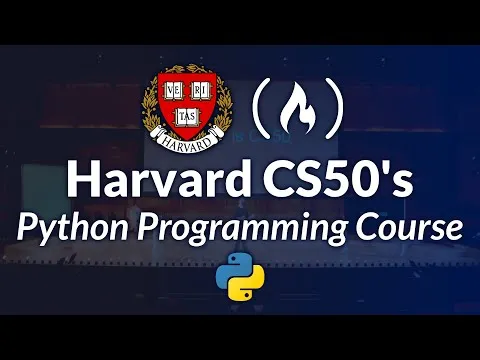
Java Exception Handling For Certification & Interviews 
This guide provides a comprehensive overview of Java exception handling, helping readers prepare for certification and interviews. It offers a straightforward approach to mastering the OCJA (1Z0-808) exam. ▼
ADVERTISEMENT
Course Feature
![]() Cost:
Cost:
Free
![]() Provider:
Provider:
Udemy
![]() Certificate:
Certificate:
No Information
![]() Language:
Language:
English
Course Overview
❗The content presented here is sourced directly from Udemy platform. For comprehensive course details, including enrollment information, simply click on the 'Go to class' link on our website.
Updated in [March 06th, 2023]
This course, Java Exception Handling For Certification & Interviews, provides students with an in-depth understanding of the Java Exception Handling concept. Through this course, students will learn the fundamentals of exception handling, including the different types of exceptions, how to handle them, and how to create custom exceptions. Additionally, students will gain an understanding of the best practices for exception handling and how to use them in their own projects. By the end of the course, students will be able to confidently answer questions related to exception handling in interviews and certification exams.
[Applications]
After this course, students can apply the Java Exception Handling Concept to their own projects. They can use the knowledge gained to debug their code and handle errors in a more efficient manner. Additionally, students can use the course material to prepare for certification exams and interviews.
[Career Paths]
1. Java Developer: Java Developers are responsible for developing and maintaining applications using the Java programming language. They must have a strong understanding of the Java Exception Handling concept in order to create robust and secure applications. As the demand for Java applications continues to grow, the need for experienced Java Developers is expected to increase.
2. Software Engineer: Software Engineers are responsible for designing, developing, and testing software applications. They must have a strong understanding of the Java Exception Handling concept in order to create reliable and secure software applications. As the demand for software applications continues to grow, the need for experienced Software Engineers is expected to increase.
3. Database Administrator: Database Administrators are responsible for managing and maintaining databases. They must have a strong understanding of the Java Exception Handling concept in order to ensure that databases are secure and reliable. As the demand for databases continues to grow, the need for experienced Database Administrators is expected to increase.
4. System Administrator: System Administrators are responsible for managing and maintaining computer systems. They must have a strong understanding of the Java Exception Handling concept in order to ensure that computer systems are secure and reliable. As the demand for computer systems continues to grow, the need for experienced System Administrators is expected to increase.
[Education Paths]
1. Bachelor of Science in Computer Science: This degree program provides students with a comprehensive understanding of computer science fundamentals, including programming languages, software engineering, computer architecture, and operating systems. Students will also learn about the latest trends in computer science, such as artificial intelligence, machine learning, and data science. This degree is ideal for those looking to pursue a career in software development, web development, or computer engineering.
2. Master of Science in Software Engineering: This degree program provides students with an in-depth understanding of software engineering principles and practices. Students will learn about software design, development, testing, and maintenance, as well as the latest technologies and tools used in the software engineering field. This degree is ideal for those looking to pursue a career in software engineering, software development, or software architecture.
3. Master of Science in Computer Science: This degree program provides students with a comprehensive understanding of computer science fundamentals, including programming languages, software engineering, computer architecture, and operating systems. Students will also learn about the latest trends in computer science, such as artificial intelligence, machine learning, and data science. This degree is ideal for those looking to pursue a career in software development, web development, or computer engineering.
4. Doctor of Philosophy in Computer Science: This degree program provides students with an in-depth understanding of computer science fundamentals, including programming languages, software engineering, computer architecture, and operating systems. Students will also learn about the latest trends in computer science, such as artificial intelligence, machine learning, and data science. This degree is ideal for those looking to pursue a career in research or academia.
Course Syllabus
Java Exception Handling: Agenda
Introduction to Exception Handling
Runtime Stack Mechanism
Default Exception Handling
Exception Heirarchy and Difference between Exception and Error
Difference between Checked and Unchekced Exceptions
Difference between Fully-Checked and Partially-Checked Exceptions
Customized Exception Handling By using try-catch
Control-Flow inside try-catch
Methods to print exception information
Exception Handling:try with multiple catch blocks
Exception Handling:Purpose and speciality of finally block
Exception Handling:finally block vs return statement
Exception Handling:finally block vs System.exit
Control-Flow in try-catch-finally
Nested try-catch-finally
Control-Flow in nested try-catch-finally
Various Possible combinations of try-catch-finally
Need of throw keyword
Important cases related to throw keyword
Need and Usage of throws keyword
throws keyword across multiple methods
Important cases related to throws keyword
Exception Handling Keywords summary and various possible compile time errors
Difference between final, finally and finalize()
User Defined or Customized Exception
How to define and use User Defined or Customized Exception
Top - 10 Exceptions
Try with Resources
Important Conclusions about Try with Resources
Multi Catch Block
Exception Propagation and Re throwing an Exception
Pros & Cons

Good explanation

Perfect for deep understanding

Combination of learning, working and teaching

Exceptional understanding

Best, Best and Simply Best

Not in English

Not enough reviews to provide referal value
Course Provider

Provider Udemy's Stats at AZClass
Discussion and Reviews
0.0 (Based on 0 reviews)
Explore Similar Online Courses

User Experience (UX) Fundamentals

DIY Leather Bucket Bag

RDBMS PostgreSQL

Intro To PostgreSQL Databases With PgAdmin For Beginners

PostgreSQL: Client Applications

Mastering SQL using Postgresql

Database Design and Basic SQL in PostgreSQL

PostgreSQL: Advanced Queries

Spatial SQL with Postgres : A language for geographers

Learn SQL Using PostgreSQL: From Zero to Hero

PostgreSQL Essential Training

Harvard CS50's Introduction to Programming with Python : Full University Course
 Related Categories
Related Categories
 Popular Providers
Popular Providers
Quiz
 Submitted Sucessfully
Submitted Sucessfully
1. What is the purpose of exception handling?
2. Which of the following is an example of an unchecked exception?
3. Which of the following is an example of a checked exception?
4. Which of the following is not a type of exception in Java?
5. What is the purpose of Java Exception Handling?
Correct Answer: To handle errors and exceptions in a program.


Start your review of Java Exception Handling For Certification & Interviews